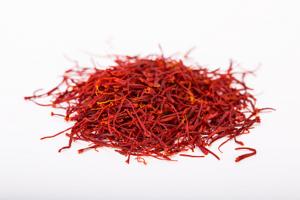When to Plant Pecan Trees in South Carolina
In South Carolina, pecan trees are a popular choice for homeowners and farmers alike. These tall, sturdy trees produce delicious nuts that can be enjoyed as a snack, used in cooking, or sold for profit. But when is the best time to plant pecan trees in South Carolina? There are a few factors to consider.
Climate Considerations
The first thing to consider when planting pecan trees in South Carolina is the climate. Pecan trees require warm temperatures and plenty of sunlight to thrive. Ideally, the temperature should be above 60 degrees Fahrenheit for most of the growing season. In South Carolina, the best time to plant pecan trees is in the spring, after the last frost has passed. This is typically in March or April, depending on the region.
It's important to avoid planting pecan trees during the hottest parts of the summer, as this can stress the young trees and make it harder for them to establish roots. Similarly, planting too late in the fall can put the trees at risk of winter damage. By planting in the spring, you give your pecan trees the best chance of success.
Soil Conditions
Another important factor to consider when planting pecan trees in South Carolina is the soil. Pecan trees require well-draining soil that is rich in organic matter. If your soil is heavy, clay-based, or prone to flooding, you may need to take steps to improve it before planting. This may involve amending the soil with compost or other organic matter or installing drainage tiles to help excess water flow away from the planting area.
It's also a good idea to have your soil tested before planting pecan trees. A soil test can tell you if your soil is lacking in any essential nutrients, such as nitrogen or phosphorus, and help you choose the right fertilizer for your trees. You can find soil testing kits at most garden centers or contact your local extension office for information on soil testing services.
Choosing a Variety
When planting pecan trees in South Carolina, it's important to choose a variety that is well-suited to your region. Not all pecan trees are created equal, and some varieties may be better suited to the heat and humidity of the South Carolina climate than others. Consider consulting with a local nursery or extension agent to find out which varieties are best for your area.
Some popular pecan tree varieties for South Carolina include Desirable, Stuart, and Pawnee. These varieties are known for producing large, high-quality nuts and are resistant to many common diseases and pests. However, it's always a good idea to do your own research and choose a variety that fits your specific needs and preferences.
Caring for Your Pecan Trees
Once you've planted your pecan trees, it's important to take care of them properly to ensure they thrive. This includes regular watering, fertilizing, and pruning. Pecan trees require deep watering once or twice a week during dry periods, and should be fertilized annually with a balanced fertilizer. Pruning should be done in late winter or early spring to remove any dead, damaged, or diseased branches.
It's also important to watch out for common pests and diseases that can affect pecan trees in South Carolina. These include pecan scab, a fungal disease that can cause leaf and nut damage, and pecan weevils, which can damage the nuts and reduce yields. Be sure to monitor your trees regularly and take appropriate action if you notice any signs of pest or disease infestations.
In Conclusion
Planting pecan trees in South Carolina can be a rewarding and profitable venture, but it requires careful planning and preparation. By choosing the right time to plant, preparing your soil properly, selecting the right variety, and providing proper care, you can enjoy a bountiful pecan harvest for years to come.

 how many times do yo...
how many times do yo... how many planted tre...
how many planted tre... how many pine trees ...
how many pine trees ... how many pecan trees...
how many pecan trees... how many plants comp...
how many plants comp... how many plants can ...
how many plants can ... how many plants and ...
how many plants and ... how many pepper plan...
how many pepper plan...





























